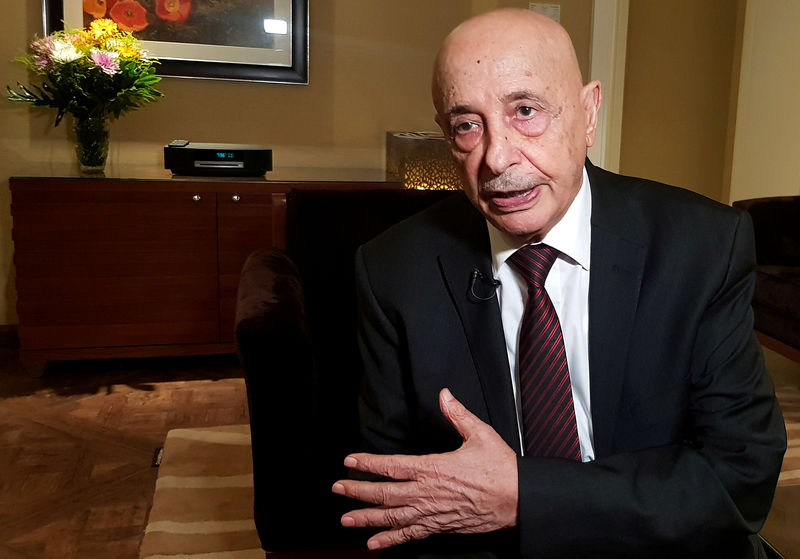By Ulf Laessing
TRIPOLI (Reuters) - France's Total and other foreign firms have started to renew their business licences with Libya's internationally recognised government to keep operating in the country, the Tripoli-based economy minister told Reuters.
The comments by Ali Abdulaziz Issawi could appease Western concerns the Tripoli government will try to suspend oil and other firms as it fights for survival against an offensive by the eastern military forces of Khalifa Haftar
In May, the economy ministry suspended Total and 39 other foreign firms, saying their licences had expired, before granting a grace period of three months to seek new ones.
Some diplomats and analysts saw the move as political pressure aimed at shoring up support abroad against an assault by Haftar's Libya National Army (LNA), which has been trying for more than two months to take the capital Tripoli.
Issawi denied a political motive, saying some firms had operated without a licence for a long time.
"There are companies working now on renewing their licences in Libya," he said, adding Total was among them.
He added that if a licence did not get renewed, "there are several oil companies to take (over) the oilfields in 24 hours. There is a lot of competition."
Other firms required to renew their licences include French aerospace firm Thales, German engineering firm Siemens, telecoms equipment firm Alcatel-Lucent (PA:ALUA), now owned by Finland’s Nokia (HE:NOKIA), and Microsoft (NASDAQ:MSFT). Total is most exposed, with oil operations on the ground.
Issawi also said Libya's oil production was around 1.25 million barrels a day, in line with previously reported levels.
Libya has been riven by conflict since the fall of Muammar Gaddafi in 2011, with the country now broadly split between eastern-based forces under Haftar and the U.N.-backed government in Tripoli, in the west, under Prime Minister Fayez al-Serraj.
Still, with Haftar's forces unable to pierce defences in Tripoli's southern suburbs, business activities continue in much of the capital and western coastal towns.
PORTS OPEN
Issawi said ports and imports were working normally, adding Libya had four months of wheat reserves.
The most noticeable impact of the conflict was a rise in some food prices, such as vegetables, as farms are located in southern Tripoli where the battle is raging.
Issawi said the government, which controls little territory beyond the greater capital region, would not incur new debt to fund the war, sticking to plans for a deficit-free 2019 budget.
Tripoli derives revenue from oil and gas exports, interest-free loans from local banks to the central bank, and a 183 percent surcharge on foreign exchange transactions conducted at official rates.
Some analysts expect Serraj's government will be forced to raise new debt if the war for control of Tripoli drags on.
With Libya dominated by armed factions, the public wage bill has soared as fighters have been made public employees to buy their loyalty.
Issawi declined to say how much the government had spent on the war effort, but said humanitarian costs could be more than 2 billion dinars (£1.1 billion).

Officials would halt some development projects. "This is a catastrophe for whole country and will impact growth," he said.